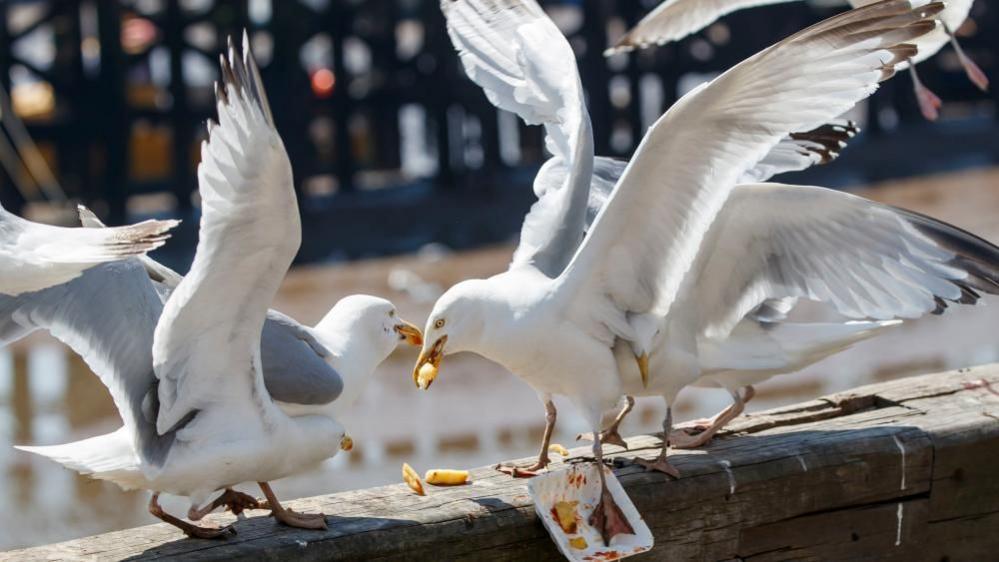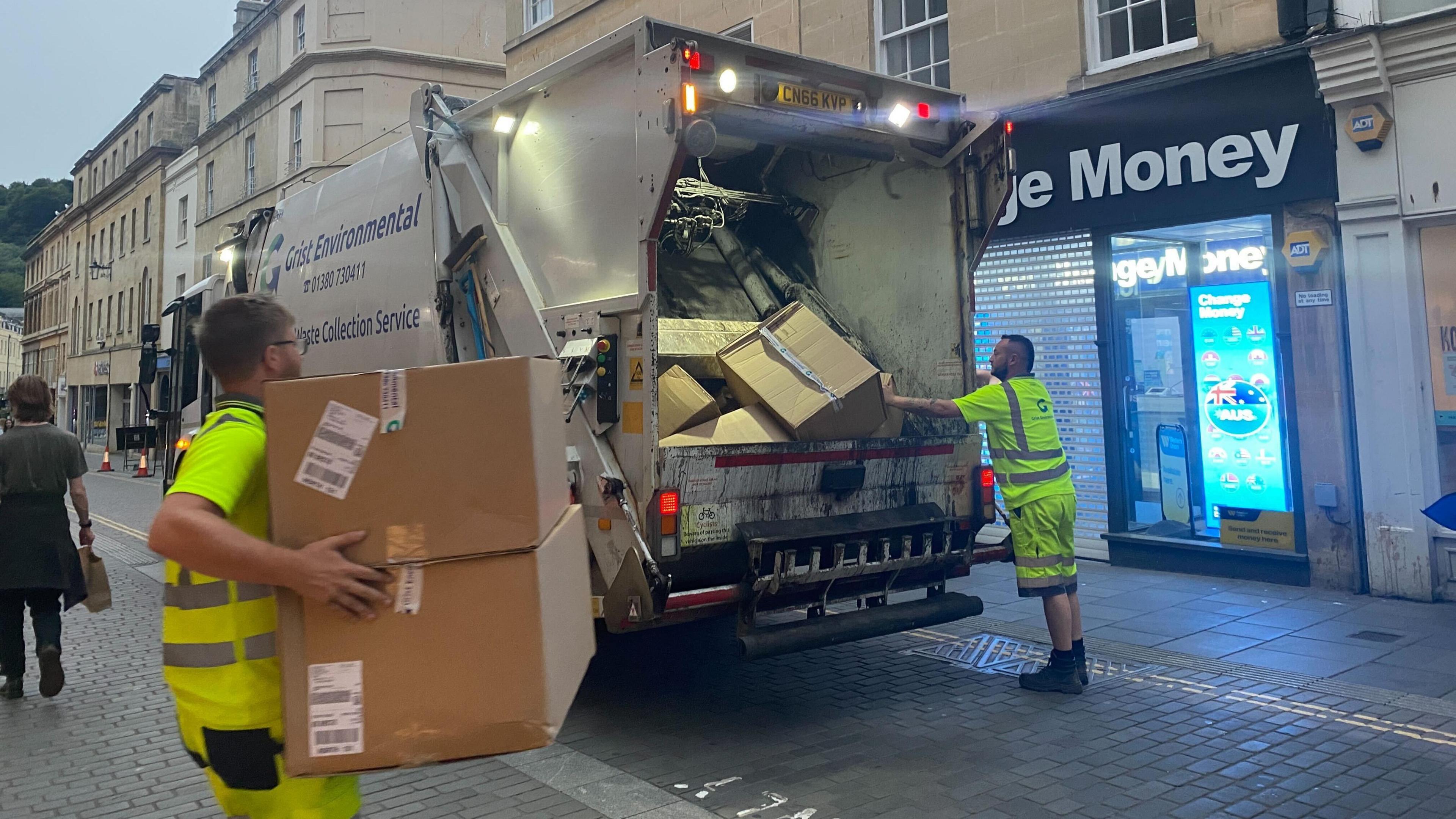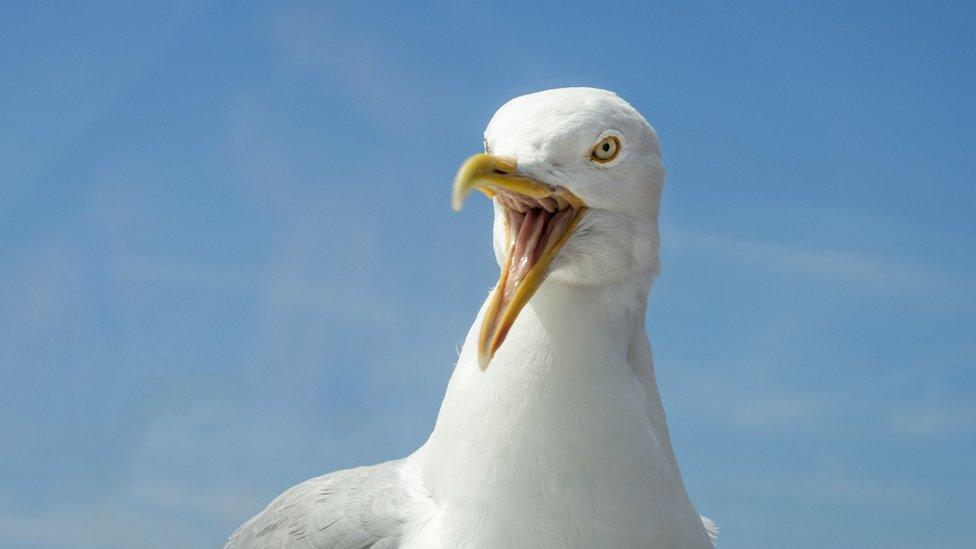Firms warned to comply with new rules to stop gulls

Early evenings are being "blighted" by seagulls spreading rubbish over Bath's streets, the council said
- Published
Businesses are being reminded they could face fines for failing to comply with new rules aimed at stopping seagulls strewing rubbish across a city centre.
The 12-month pilot scheme in Bath will start on 6 October and will require businesses on certain streets, external to put their waste in reusable "gull-proof" sacks or bins or they could face maximum fines of £110.
Bath and North East Somerset Council will also be changing the waste collection times to limit how long the rubbish is out on city centre streets.
Mark Elliott, cabinet member for resources, said that currently "early evenings are blighted with packaging strewn over the pavements, attracting gulls", which looks "very unsightly".
The new waste collection arrangements will ensure that business waste is only on the streets outside the hours of 10:00 to 18:00 and is properly contained to help deter gulls, the council said.
'Improve visual appeal'
Rubbish must be bagged and contained in the reusable sacks or bins and all waste and recycling containers must be marked with the business name and address.
The evening collection window will be pushed back an hour to 18:00 to 20:30, while morning collection times of 07:30 to 10:00 will remain unchanged.
Mr Elliot said: "The change in policy for business waste collections will aim to improve the visual appeal of central Bath to visitors and residents alike, during shop opening hours and the busy early evening period."
He said that the conclusion from a public consultation was that "better containment of non-recyclable waste in labelled reusable sacks will help guard against the mess and noise that gulls can cause within the city".
The council said that residents should be reminded that gulls are protected by law, and it is illegal to injure them or damage their eggs or nests without consent from Natural England.
Get in touch
Tell us which stories we should cover in Bristol
Follow BBC Bristol on Facebook, external, X, external and Instagram, external. Send your story ideas to us on email or via WhatsApp on 0800 313 4630.
- Published1 August

- Published27 July 2023

- Published24 July